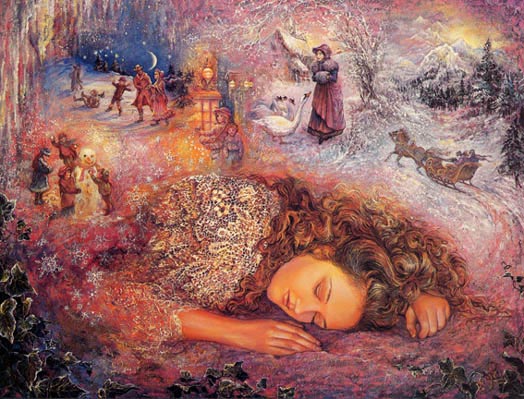CAUSE OF DREAMS
Ecclesiastes 5:3
Viewing the King James Version. Click to switch to 1611 King James Version of Ecclesiastes 5:3.For a dream cometh through the multitude of business;
Causes of Dreams
The causes of our dreams are merely theories and educated reasoning. The brain, especially the subconscious, is so advanced and detailed that we have yet to find many things out. There are even interactions within the brain that haven't yet been discovered or known processes explained in such a way to be considered scientific fact, and the subconscious is no exception.Freud's Theory
Sigmund Freud's theory was that dreams were an outlet for our hidden desires. In spite of the fact that there were numerous theories, none could actually gain as much acknowledgment as Freud's. He explained that our dreams were based on the activities that we do all day long which are combined with our wishes. He believed that nothing could be "made up" during the dream, and whatever happens in a dream is the direct result of various instincts and experiences in the dreamer's life. Another interesting aspect of his theory arises from his theories of id, ego and super ego. These are what Freud calls the three elements of personality. Id is the pleasure principle that doesn't understand any kind of norms or inhibitions. Freud said that a newborn child is a bundle of ids since the newborn wants what (s)he desires and would fail to understand any reasoning. In opposition, super ego develops in us from the age of five, as a compilation of what our parents teach. Ego lies between Id and Super-ego. It is "repressed Id," and it mediates Id and Super-ego. Freud explained that when the ego collapses, which occurs when there is an extreme pressure from Id and super-ego, it fails to balance both - that is when our minds create a defense mechanism called dreams.Jung's Theory
Carl Jung's theory explains that dreams were the result of not only one's personal experiences, but that it is also associated with the collective conscious - which is part of the mind. It consists of the impressions of the events occurring in the world, particularly those events that have occurred or are occurring to the dreamer. He states the dreamer could interpret the dreams by forming a combined image of all the dreams and finding a common element among them. Upon finding this common element, it could be interpreted into an incident that probably really did happen and that would give the cue to the interpretation of the dream.Perception
Perception is that dreams are determined by the way we perceive and how our imaginations guide us. These perceptions are also shaped by an individual's personal experiences.More Thoughts
Dreams come from memories in your mind (usually memories from the past three days). Your brain mixes up the memories and comes up with a dream.Dreams are a cumulation of events that have happened in one's life and is the subconscious' way of possible warning the dreamer of anxieties or as a way to relieve the anxieties. For some people, writing their thoughts out on paper makes them feel better about stress, issues, or events that have happened. This coping is related to the dreaming processes in that the subconscious of the person needs to "sort out" these things as well - thus causes dreams.



Comments
Post a Comment